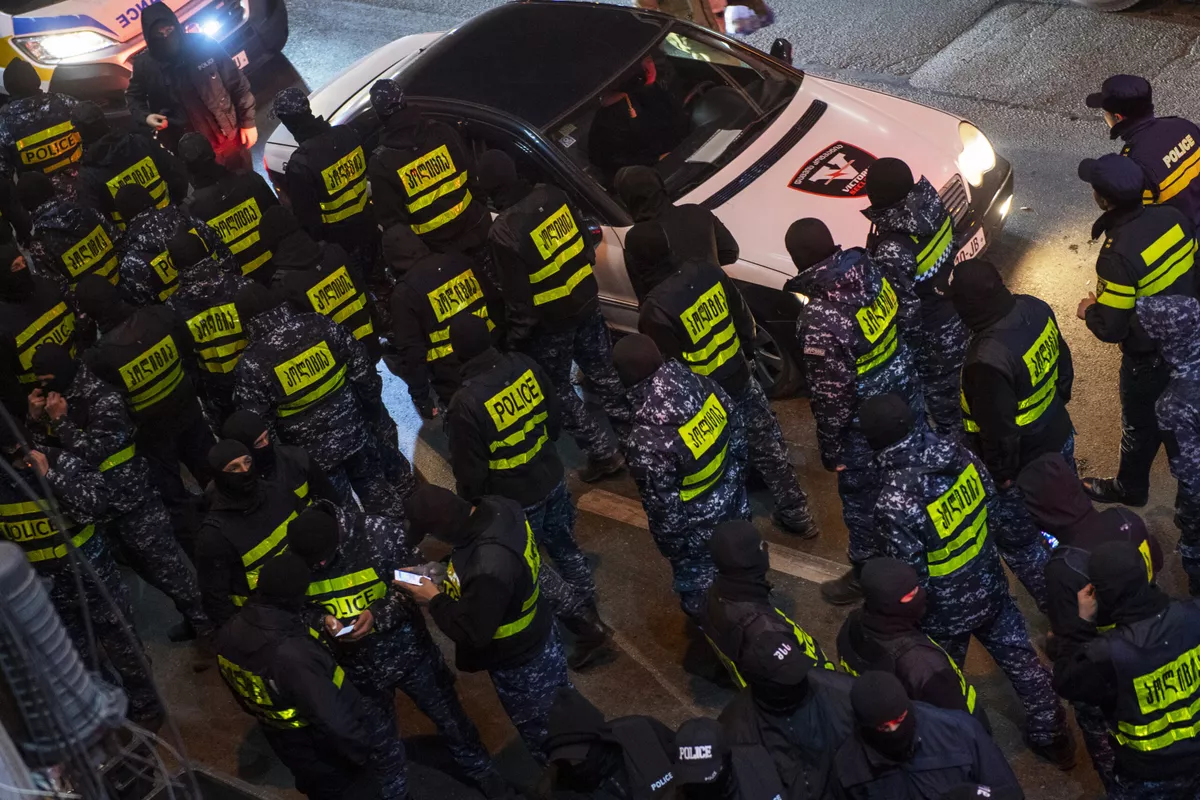
Copyright: JUDA_KHATIAPSUTURI
Tbilisi-based watchdog Transparency International Georgia (TIG) has strongly condemned the ruling Georgian Dream party's recent amendments to Georgia's protest laws, describing them as "repressive" and effectively abolishing citizens' constitutional right to freedom of assembly.
The group says the legal changes, adopted over the past two years, amount to a government campaign to criminalize dissent, The Caspian Post reports citing foreign media. Detailing the changes in a statement released Tuesday, TIG claimed that since December 2024, the Georgian parliament, which is dominated by the Georgian Dream (GD) party, has amended the country’s protest legislation four times, each time imposing harsher restrictions on demonstrationsThe amendments have led to tangible impacts on public life. The organization says 148 people have faced criminal prosecution for participating in protests, with 66 placed in pretrial detention and 54 already sentenced. Thousands more, it added, have been fined up to 5,000 lari (around USD 1,800) for violating assembly rules.
According to the watchdog, the amendments violate both Georgia’s Constitution and the European Convention on Human Rights. “The new laws are designed not to protect public order but to intimidate and punish citizens for expressing dissent,” TIG said, describing them as “draconian measures” that serve as “a mechanism of fear.”
Among the most recent changes, passed on October 16, participants can now face up to 15 days in jail for covering their faces during demonstrations, setting up tents, or blocking traffic. Repeat offenses can lead to criminal prosecution and prison terms of up to four years for organizers. Even minor acts of disobedience toward police officers can carry jail time, while fines have been largely replaced with administrative detention. Exceptions apply only to pregnant women, minors, or people with disabilities.
The group also criticized an earlier round of changes from July, which introduced jail penalties for those unable to pay protest-related fines. Organizers who refuse to pay can be jailed for up to 20 days, while failure to comply with police instructions three times can now result in a one-year prison sentence.
Further amendments adopted in February and December 2024 drastically expanded police powers, restricted spontaneous demonstrations, and increased fines by as much as tenfold. Police may now identify protesters through surveillance footage and digital recognition software at the interior minister’s discretion.
TIG argues that the cumulative effect of these provisions is the “practical elimination of Georgia’s right to peaceful assembly,” transforming what were previously civil penalties into quasi-criminal offenses. The group said the laws were rushed through parliament without consultation with opposition parties, academics, or civil society.
The group further points to international observers, including the Venice Commission and Amnesty International, which have also voiced concerns. The Venice Commission warned that provisions such as “preventive detention” and the ban on face coverings breach fundamental legal principles. Amnesty International described the laws as “new draconian tools to suppress dissent.”
Government officials have defended the changes as necessary for maintaining order and ensuring public safety, particularly after months of nightly demonstrations in central Tbilisi that have at times blocked streets and targeted police. Georgian Dream lawmakers argue that the amendments bring Georgia in line with European standards for public gatherings and are meant to protect ordinary citizens from disruption.
The press release and media reports of it were made public Tuesday without accompanying responses to the allegations from government officials.
Share on social media